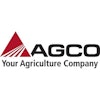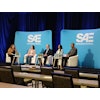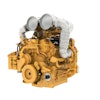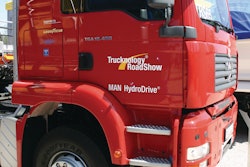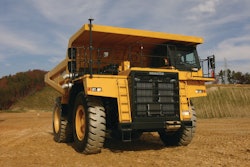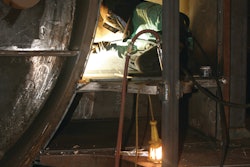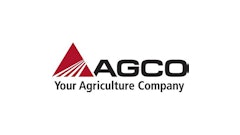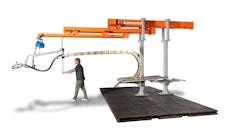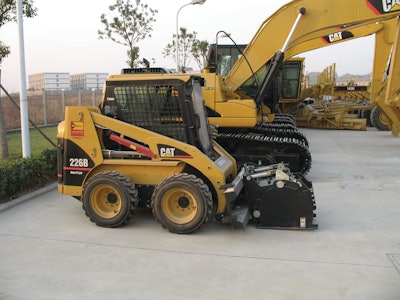
Many manufacturers have included China in their business plans. It's no secret why. The existing market there is huge, and its potential for growth is enormous. This can be illustrated with a single project: When millions of people travel to Beijing for the 2008 Olympic Games August 8-24, they will see the results of a reported $22 billion spent in infrastructure improvements for the occasion. The government is upgrading roads, rail transportation, airports and more. That's good news for equipment manufacturers.
Caterpillar (China) Investment Co. Ltd., (CCI) was established in Beijing in 1996 to support Caterpillar Inc.'s business in China. Since then, Caterpillar has invested in 15 different facilities and now has five dealers working territories that blanket the country. The dealers have helped expand Cat's line-up in China from a handful of pieces a few years ago to 30 models today. The plan is to grow that number to 75 by 2010.
Established in 1995, Caterpillar dealer Lei Shing Hong Machinery Ltd., Kunshan, Jiangsu Province, covers the east-central portion of the country. Its operation in Shanghai sells Caterpillar equipment as well as Cat and Perkins engines. Next door, Lei Shing Hong's other sales division can put a successful Caterpillar user in a new Mercedes or Maybach automobile. Lei Shing Hong recently opened the first Provincial Support Center in China. Located west of Shanghai in Nanjing, the facility is a sales, parts and service hub. It's also home to a Cat Rental Store.
In China, the Cat Rental Store network has a slightly different goal than it does in North America. "The facilities aren't just renting," says Danny Davis, general manager, China Business Ventures, CCI, Beijing. The business of renting equipment is new in China. "Rental is catching on, and our strategy with Cat Rental Store is coverage in addition to rental. These small stores will be scattered throughout China to support customers."
Because some of the equipment available through Caterpillar is as unfamiliar in China as renting itself, representatives at Cat Rental Stores and dealers must educate in order to sell machinery. "Scraper technology is completely foreign here," says Davis. "Workers will use wheel loaders, excavators or some other tool to do what a scraper will do in a fraction of the time."
While driving to Nanjing on a new, high-speed toll road, it's common to see workers sweeping the shoulders of the highway with hand-held straw brooms. When low-priced labor is so easy to obtain, introducing labor-saving machinery into the market takes training and patience.
To sell a new work method, dealers put the machine to work. "We'll subsidize parts of road projects at our expense to show how it could be done," says Davis. "It is an educational process as well as an investment to bring the market along and show what's possible with the right equipment."
In China, the educational process now includes the versatile skid steer, a relatively new product for CCI. "We offer solutions to our customers," says Pablo Van, general manager, Shanghai Branch, CCI, Shanghai. "We are entering the Chinese market by offering an integrated solution to help customers grow their business. They always look for profitable returns."
When Lei Shing Hong's Cat Rental Stores sends a rental machine to a new customer, an operator is usually included. "It is a challenge to find qualified operators," says Andrew Egan, regional director Jiangsu & Anhui, Jiangsu Province Service Center, Nanjing. "We rent machines with an operator to make sure the machine is looked after in the right way." This ensures it is used efficiently and safely.
"In China, rental is a long-term proposition," says Davis. "Dealers are investing a lot in the little stores, but they are not just depending on the rental income to support them. They also see the opportunity in using the stores as a key area of sales and service support. They wouldn't do it if they couldn't use it to better support local customers. And, when rental does kick in we will have established relationships with customers in the area."
World class machines
Excavators and wheel loaders make up the majority of construction equipment sold in China. The wheel loader business is especially strong, with as many as 150,000 units sold annually. Much of that equipment is home-grown. "Wheel loaders show an 8-10% growth every year," says Davis. "There are dozens of wheel loader builders in China, but the top 10 sell 80% of the machines. Some companies sell less than 20 a year."
Davis believes the wheel loader industry in China is over capacity. "Something will give. Small state-owned entities will decide they are not money-making ventures and close or join with larger players to export more machines."
Caterpillar entered the Chinese wheel loader market in 2005 when it invested 40% in Shandong SEM Machinery Co. Ltd. This February, Caterpillar completed the acquisition of the firm. A respected brand of heavy-duty machinery, it was founded in 1958 and has 2,200 employees in Qingzhou City, Shandong Province. Caterpillar immediately implemented Six Sigma methodology at the factory and worked to improve management skills and manufacturing processes.
Caterpillar's manufacturing history in China goes back to 1994 when it established a joint venture with Xuzhou Construction Machinery Group, the largest equipment maker in China.
Today, Caterpillar (Xuzhou) Ltd.'s plant in Xuzhou City follows Cat's worldwide standards for manufacturing, quality and safety to produce 300 Series excavators and track-type tractors. Paving products and motor graders are also made there by Caterpillar Paving Products (Xuzhou) Ltd. Machines made in Xuzhou are an identical copy of machines made in Illinois or Japan.
"If you try to beat Chinese manufacturers on price, you can't do it," says Davis. Typical Chinese-built machines are inexpensive and not expected to last. Caterpillar's business model is to build the market for its world class products, such as the excavators from Xuzhou City. The new Suzhou facility in Jiangsu is expected to be building world class wheel loaders in 2009.
"Caterpillar's business model has always been to support its equipment from cradle to grave," says Davis. "It's no different in China. The big difference is we have to take time to change the mindset here. We have to sell the value of what we do rather than beating a machine sold on price that will be thrown away."
